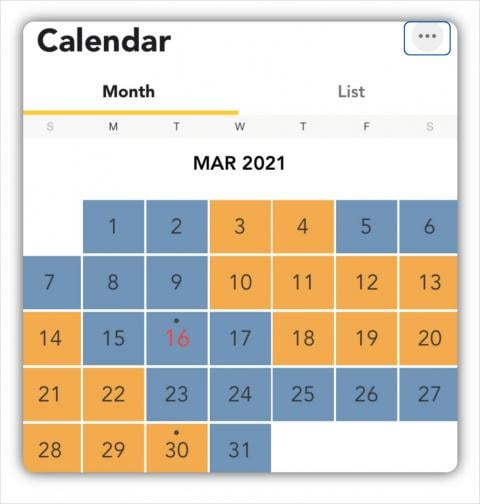How to Set Boundaries with a High Conflict Co-Parent
Ending a relationship with a partner who is prone to conflict can be challenging on many levels. If you have children, one of the most significant difficulties will be figuring out how to build a working relationship and effectively communicate as co-parents. In that, you may have ideas about how you envision yourself parenting moving forward, yet it's possible that these ideas might converge with those of the other parent.
Apprehension related to raising children with a high-conflict co-parent is not uncommon or invalid, but it can complicate the situation for everyone involved, especially your children. Without a willingness to work with this person, merely broaching the subject of creating a parenting strategy can be hard.

You may feel certain reservations about working together with your former spouse or partner, fearing that trying to work together might cause arguments, hurt feelings, or further complications between you two. Yet without some level of cooperation, your shared parenting is likely to suffer as a result. Respecting your co-parent means acknowledging their role and efforts without hostility, even during disagreements. This fosters a healthier environment for children and encourages cooperation.
Having a high conflict co-parent might make raising kids together more difficult, but maintaining certain boundaries between yourself and the other parent can help you stay protected and make it easier to manage your shared parenting. Here are a few ideas for how you can work towards setting boundaries with a high-conflict co-parent.
Setting co-parenting boundaries
In a high conflict co-parenting situation, agreeing on a parenting plan will take a good deal of effort. That's often the case because conflict, disagreements, and miscommunication have the power to create massive boundaries for parents who are trying to formulate a plan for how to raise their kids from here on out.
Mediation is a voluntary, non-adversarial process where a neutral third party helps parents reach agreements outside of court. It can be especially helpful in reducing tension and finding compromises. Mediation may help some, but in many cases where conflict is a problem, parents may find themselves settling their arrangement in court.
No matter how you do it, once you decide on your plan, commit to sticking to it. Hit the essential points in dividing the finances related to your child, which may include issues surrounding scheduling, expenses, how you'll make decisions together, etc. Financial boundaries set clear expectations about sharing and managing child-related expenses. They help avoid misunderstandings and reduce stress related to money between co-parents.
Follow the guidelines set out in your parenting plan so that you have something tangible to back up the actions you take. This will help to reduce the risk of creating conflict by doing something which your co-parent might say is wrong.
With clear boundaries, you're less likely to run into conflict. Moreover, if your co-parent is the one who cannot follow the parenting plan and stick to its boundaries, continue to hold to it yourself. Communication boundaries define what topics and methods are acceptable for interaction between co-parents. Clear boundaries prevent unnecessary arguments and keep conversations focused on the children.
If your co-parent's disregard for the plan is creating issues that are taking a toll on you and your child, bring this to the attention of your attorney or other trusted family law professionals with whom you work. They will be able to offer you guidance on how to move forward in this situation.
Keep your personal life personal
When an intimate relationship ends, emotions are all over the place. Even if you wanted it to be over, you're probably still feeling the pain of it being over. However, you must set some emotional boundaries to protect yourself from getting hurt or falling back into a bad relationship. Keeping your personal life personal means limiting discussions with your co-parent strictly to child-related topics. This boundary helps prevent emotional conflicts and maintains privacy.
One way to keep your emotions in check when it comes to your co-parent is to keep your personal life to yourself. The only topics that you need to discuss are those having to do with your kids and nothing more. If your co-parent begins to ask for details about your personal life, respectfully decline to talk about it.
If you have mutual friends with your co-parent, consider not seeing this group of people, at least for a while. You may even tell your friends about why you are taking a step back from their social group.
If social media has caused issues in the past, block your co-parent's accounts or consider disabling your profiles for some time. By not creating an opportunity for your co-parent to stalk you on social media, you are creating boundaries for what your co-parent knows about your personal life. Maintaining these boundaries will allow you to better control the details that your co-parent knows about your personal life which can protect you in many ways.
Consider parallel parenting
When your co-parent isn't willing to cooperate, and communication is difficult, parallel parenting may be an excellent approach to take. Parallel parenting is co-parenting but with added boundaries. One of these boundaries will be to disconnect from your co-parent on a certain level by not communicating directly with each other.
What is parallel parenting?
In other words, parallel parenting is a co-parenting method where parents disengage from direct communication to reduce conflict. Instead, they follow a structured parenting plan and limit interactions to essential matters involving the child.
You'll limit your interactions to only what's most important for your children. What you may not know about parallel parenting is that it doesn't have to last forever, but it will significantly impact the way you manage your shared parenting at the onset.
In parallel parenting, you may find that you implement a rather specific parenting plan. This will encourage each parent to follow the parenting plan while also removing the risk of conflict created by direct communication. For this reason, you may plan parenting time exchanges at a supervised location, or you may not even attend exchanges together.
You may still need to communicate at times over matters like child-related emergencies and significant decisions, but you won't do so in the ways you may have previously. Written communication is often more comfortable in high conflict co-parenting situations because it allows parents to keep a physical boundary between each other. While this is true, emails and text messages can often lead to some conflict due to ambiguity or unfriendly words.
Communication tools for parallel parenting
The OurFamilyWizard website provides an online communication tool that is much more than just messaging. The different features of the website section out where parents should be communicating about particular topics such as the parenting schedule, child-related expenses, and vital family information.
These features help to structure co-parent communication by requiring only certain, specific details that pertain to the topic at hand. This helps to keep parents focused on just providing the necessary information while also limiting the opportunity for written conflict to occur.
OurFamilyWizard has a Messages feature, but it also provides ways to communicate without sending an open-ended message (like sending a schedule change request through the Calendar). When you do write a message, ToneMeter AI flags lines that could provoke more conflict, giving you a chance to consider your tone. Then it provides alternative phrasing to keep things calm, so you don’t even have to spend time rewriting your message.

Co-parenting relationship pitfalls
As you do what you can to set boundaries between your co-parent and your personal life, you should also do the same when it comes to the other parent and their life. Being too curious about your co-parent's life is one of many pitfalls that you might find yourself falling into in this situation.
You might find your high conflict co-parent trying to entice you into conflict by pushing your emotional buttons, or they may even go as far as to harass you either directly or indirectly.
This might include sending mean messages to you online or spreading rumors about you. Because of this, dedicate yourself to set a boundary that prevents you from falling into these pitfalls of conflict.
Limit your time on social media, and don't view posts that could be related to your co-parent. If your co-parent sends you a mean message, don't reply to anything that you don't have to. Stick to only talking about things that have to do with your kids.
If you hear from friends that your co-parent is spreading stories about you, ask your friends not to listen to that. Explain the situation with your co-parent and how hearing that they are spreading rumors makes you feel. If you feel like your co-parent has gone too far or has been doing this for too long, talk to a professional right away. This might be your attorney or, in the most extreme cases, the police.
Talk to someone you trust
Getting through a divorce or separation with a high conflict partner isn't something you can easily do on your own. While you are setting boundaries to protect yourself from the other parent, don't set limits that prevent you from getting the help you need.
Talk to close friends and family members with whom you trust enough to vent your emotions. Also, don't hesitate to talk with a professional such as a counselor or therapist.
These individuals are trained to help you work through your feelings and maintain your emotional health in situations like this. Counseling or therapy sessions can help you break through the emotional boundaries that may be keeping you from reaching your full potential during this new phase of your life.
Keep a dialog going with your attorney, mainly when you are still dealing with conflict from your co-parent. They can guide you in which steps to take to protect yourself and your kids from harm caused by high conflict situations.
Co-parent boundaries are worth it
Setting boundaries with a high conflict co-parent might sound easier than it is to actually do, but it is well worth the effort. Determine your parenting plan and commit yourself to stick to it.
Create communication boundaries and decide how best to handle the times that you do need to talk.
Maintain your privacy when it comes to your personal life, and don't allow yourself to fall into pitfalls that cause you to feel curious about your co-parent's personal life.
Finally, do not create boundaries for yourself when it comes to seeking help when you think you need it. If you are looking for a professional in your area, check out our Regional Resources guide for your state.



